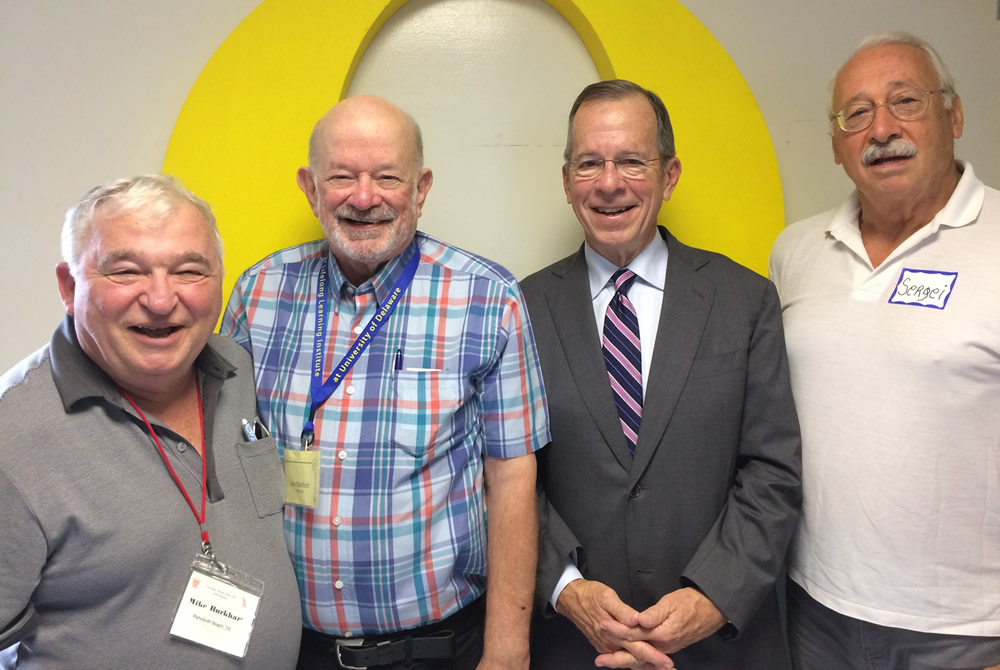
Last fall, the Issues in U.S. Foreign Policy class at OLLI Lewes hosted an exciting series of guest speakers presenting wide-ranging discussions on international issues currently facing the U.S.
Addressing hot-button topics like terrorism, chemical weapons and U.S.-Russia relations, presenters included high-level U.S. foreign policy specialists and public servants with backgrounds in the U.S. Foreign Service, academia and the U.S. military. A former chairman of the Joint Chiefs of Staff, former U.S. ambassadors, a former CIA senior analyst, a former CNN world affairs correspondent and more were among the who’s who of guest experts.
OLLI instructors Sergei Boboshko and Lee Stanford cite a lifelong interest in international affairs and a desire to inform as their inspiration for this course.
“It is generally an accepted view that Americans are not as well informed as they should be on matters of geopolitics that affect the U.S.,” said Boboshko. “Therefore, and as we state as the objectives for this course, we wish not only to inform but to allow Americans to make informed choices about what leaders to elect, what policies to support, and ultimately to have influence on what role the U.S. should play on the world stage. As such, this is an integral part of our democracy and of our democratic heritage.”
When asked about assembling such an impressive speaker roster, Boboshko explained, “Some of our speakers are already members of our OLLI Lewes community, whereas others have been referred to us by our students. We consistently ask our students to look at their personal rolodexes to see if any of their neighbors, former colleagues, college friends, etc., might have the professional background to be an interesting speaker on a foreign policy topic. Both Lee and I have done the same.”
One notable invitation grew out of a college friendship. OLLI member Michael Burkhart, a physician and former Marine and Army National Guard helicopter pilot, nominated his friend and U.S. Naval Academy roommate, Admiral Michael Mullen (retired). Admiral Mullen served as chairman of the Joint Chiefs of Staff under two presidential administrations, and discussed with the OLLI class his insights about the decline of U.S. influence abroad.
“This is a great example of our ability at OLLI of ‘using the network’ to attract great speakers who might not otherwise be as readily available to us,” commented Boboshko.
OLLI member Joseph Wolzansky appreciated the course as a learning opportunity resulting from OLLI’s well-connected membership, saying, “Our local OLLI community includes members with personal ties to national figures who have been willing to bring their views to our classrooms.”
The series has been very well attended with extensive Q&A after the presentations. Boboshko added, “Attendance has been between 65-70 for each class this semester, and we never seem to have enough time for all the questions, despite the fact that we run for 90 minutes without a break.”
Across speakers and topics, Boboshko notes a few common themes that emerged, especially the decline of U.S. influence in world affairs at a time of increased risks, and as a result, an increased need for strong U.S. alliances abroad.
The complete list of featured speakers included:
OLLI members Peggy and Don Lewis also attended last fall’s course, saying “We both really enjoyed the class. The speakers were exceptional, and all the topics were timely. Whatever the subjects, we are looking forward to attending the next session.”